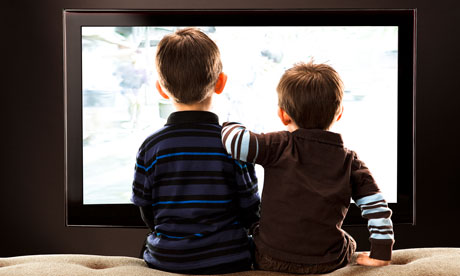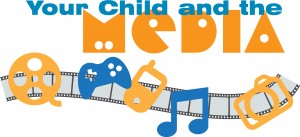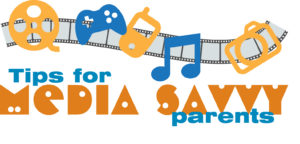Children & Media

“Training in the proper use of the media is essential for the cultural, moral and spiritual development of children.” Pope Benedict XVI
Raising children in the 21st century certainly has its challenges. There are so many influences on our children which enter our homes and our children’s lives without our permission and often without our knowledge. Music lyrics and videos, gaming, internet, TV shows, mobile phone apps, movies… the reach of the modern world is all pervasive, often contradictory to our values and sometimes outright malevolent. The task of parents as educators and protectors of their children has become increasingly complex. World view – we all have one It’s important to remember that every journalist, producer, editor, singer, actor, newsreader and teacher has one too. Our world view will form our attitudes and will definitely influence what we say, do and publish. The question for parents is: Is the world view of the people to whom my impressionable child listens and watches consistent with my Christian values and the world view of our family?
World view – we all have one
It’s important to remember that every journalist, producer, editor, singer, actor, newsreader and teacher has one too. Our world view will form our attitudes and will definitely influence what we say, do and publish. The question for parents is: Is the world view of the people to whom my impressionable child listens and watches consistent with my Christian values and the world view of our family?
Never let the facts get in the way of a good story
“If I’m going to read some fiction, I’d sooner spend my money on a good book than the daily paper” – FTP
There is a widespread assumption that the news media is truth telling. Unfortunately, the old-style journalistic code of ethics where objective truth was paramount, sources and facts were tested and verified, alternate viewpoints were articulated, and the common good was respected, is not the norm anymore. News media is part of the entertainment industry. And it’s big business. Regrettably, ‘good news’ stories don’t sell as well as scandal and tragedy. Intelligent opinion doesn’t attract readership as effectively as vitriolic and extreme viewpoints. Tight deadlines have initiated sloppy and lazy reporting leading to republishing of inaccuracies as journalists quote other journalists and neglect to check the accuracy of the original report.
Photos don’t lie…or do they?
Images have a powerful impact on the human brain. Words, printed or said, clearly represent the opinion of an individual. As we listen to or read them, our brains interpret them, debate them, and finally draw a conclusion on whether or not we agree with them. What we subsequently remember is our interpretation: rarely do we recall the precise words spoken.
When we see a photograph however, there is no spontaneous ‘interior debate’ about the ‘opinion’ of the photographic image – it presents itself as a factual snapshot of the subject. And yet every published photographic image is an edited image. Even the precious few that haven’t had a Photoshop make-over have been carefully selected to present the subject according to the view of the editor. Witness the prevalence of unflattering photographs published in tabloid gossip pages. This is the problem with photos as communication: it is the image that we see that imprints on our memory, and though we may tell ourselves it’s a fiction, the brain records it at face value.
Critical Literacy
One of the most important skills parents can teach their children is critical literacy. Teaching our kids to question what they see and hear and to test it against the values of the family is a crucial life skill. This means parents themselves need to be thoughtful and well-informed. We also need to be secure enough in ourselves to allow space for our children to explore different perspectives and opinions. Sometimes they won’t agree with our interpretation or viewpoint. Ultimately, they will need to establish their own value system and world view. The challenge is to help them critically review their experiences with a Christian world view; rather than simply let their world view be formed by random external influences.
- Engage with your child in what they are watching and listening. Foster curiosity from a young age by posing the ‘pondering’ questions to your child: “that’s interesting… I wonder why it does that?” “Do you think that is true?” “I wonder if there is another explanation for that?” etc
- Family meals create a forum where healthy conversation can flourish. Use your (TV free) meal times to let family members share about their day. As children mature, the time can be well spent discussing a topical issue encouraging thoughtful debate and discussion.
- Screen/filter internet, TV, gaming. We won’t be able to do this forever, but we have a responsibility to protect the developing minds of our young children from influences that will permanently disable their ability to relate to the world in a healthy manner. It is critical that we prevent premature exposure to sexual and violent content when children are still learning how to differentiate between reality and fantasy.
- Set limits. And stick to them! If not restrained, children will happily spend all day gaming or watching TV. Set simple rules (eg no TV until after dinner and homework) and apply consequences when they are breached.
- Encourage reading. Not only does reading foster imagination and creativity, it remains a crucial skill for accessing a wide range of perspectives on any given topic. Reading by its nature will foster the critical literacy necessary for our children to develop into thinking, intelligent adults.
- Be vigilant. Stay informed about current issues that are impacting your children. You won’t be able to engage your teenagers in conversation and debate if you don’t know the significant features in the landscape of their lives.
- Be the example. Nothing will erode your child’s respect for you faster than hypocrisy. If you want your teenagers to take you seriously, be self disciplined about how much and what digital material you digest.
- Provide alternative entertainment. Too many people end up watching mind-numbing TV reruns through simple boredom and laziness. Though it takes more effort to organise a family board game or footy match than to flick the switch on the TV, it will pay dividends in the long run.
- Friends of a feather. Be discerning about your children’s friends. While they will increasingly assert their independence in choosing with whom they associate, you can still be influential well into their late teens. Make an effort to know your teenagers’ friends; encourage them to bring their friends home and engage them all in conversation. Teenagers need a place to meet and socialise. If parents fail to provide safe meeting places, be assured, someone or something else will fill it and it almost certainly won’t be a healthier outcome.
- Pray! The battle for the minds of our youth is no trivial matter. Prayer is essential in building virtue and character in our children. In the words of St Paul: Be strong in the Lord and in his mighty power. Put on the full armour of God so that you can take your stand against the devil’s schemes. For our struggle is not against flesh and blood, but … against the powers of this dark world. Eph 6:10-12
Celebrity Role Models for a Better World
Tim Tiebow, the American Gridiron player who wears his faith literally on his face paint, proudly professes his Christian faith and conducts himself both on and off the field with uncommon virtue.
 Catholic actor, Neal McDonough (Band of Brothers, Minority Report, Desperate Housewives), was recently fired from the cast of TV series Scoundrels for refusing to participate in passionate sex scenes – a standard he has maintained throughout his career and was well known in the movie business. His stand reportedly cost him a million dollars.
Catholic actor, Neal McDonough (Band of Brothers, Minority Report, Desperate Housewives), was recently fired from the cast of TV series Scoundrels for refusing to participate in passionate sex scenes – a standard he has maintained throughout his career and was well known in the movie business. His stand reportedly cost him a million dollars.
These are some of the modern day heroes of the Christian Family. But you won’t find their stories in the secular media.



